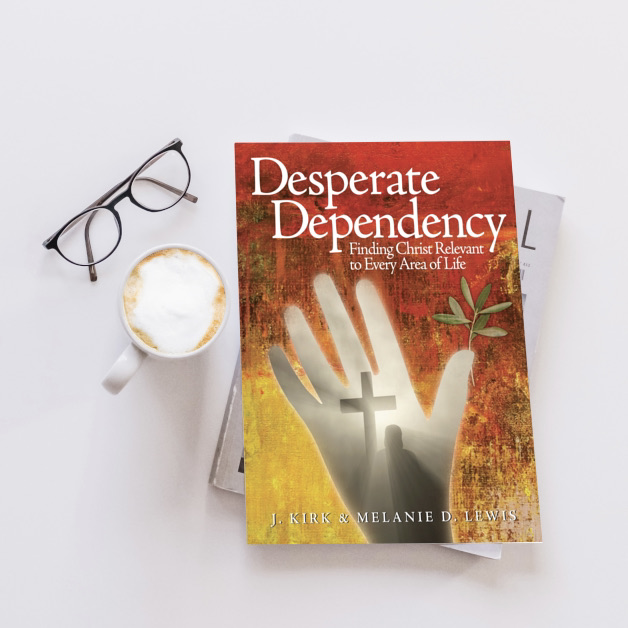
My way isn’t working to resolve guilt, shame, and fear.
Have you come to the place that you realize that your way isn’t working to resolve guilt, shame, and fear? Maybe you feel lost because something is missing in your life? And perhaps you are wondering, “Am I the problem that keeps me stuck?” You have tried so many creative solutions, but nothing works to settle your unsettled heart. But there is a solution.
My behaviors are my solutions to resolve guilt, shame, and fear.
Despite our best efforts, our behaviors are only our inadequate solutions aimed at resolving the deeper problem. This deeper problem cannot be resolved by our own power, no matter how diligent the endeavor. The implementation of our solutions drives our lives. We utilize all our energy and try to employ others to facilitate our remedy. But as we pursue various resolutions to this deeper problem, we only add more problems to our lives. It permeates all we do.
The deeper problem is best defined as the nature of sin that resides within all of us. This nature of sin is incorporated into the essence of who we are. All aspects of our being are infected, not just affected, by sin. This sin nature controls our desires and the behaviors we choose and establishes our state of being. Because of the sin nature, life is dominated by guilt, shame, fear, anger, loneliness, and a propensity to seek self-interest.
But there is another power within me that is at war with my mind. This power makes me a slave to the sin that is still within me.
Romans 7:23 NLT

The sin nature brings guilt, shame, and fear.
The nature of our sin produces a continual crisis. Our current line of solutions is not working to resolve the guilt, shame, and fear inherent to the sinfulness. Emptiness, low self-esteem, loneliness, and perfectionism are the manifestations of the symptoms festering in our souls. We want to say, “My boss is a jerk,” “My spouse is not meeting my needs,” “My kids don’t measure up to my standards,” and “My career is not satisfying.” But these things are not the real crisis.
The real crisis is that our way isn’t working to resolve the manifestations of sin. We are alienated from God. And we are looking for new solutions. But we are dissatisfied with others and ourselves. Therefore self-centeredness escalates the crisis. Self-centeredness is the embodiment of our sinfulness. The character of sin is exposed through the promotion and preservation of self. The unresolved issues of the nature of sin within us create the mounting pressures of life, stress, anxiety, depression, and all predicaments encountered. Our daily crisis results from the resident sin.
I want to live with love, joy, and peace.
In an attempt to resolve our crisis produced by the nature of sin, we seek deliverance. God has designed us to live within a context of love, joy, and peace. We are not designed to live in a constant state of pressure, stress, and anxiety. But the nature of sin brings these traumatizing by-products along with the guilt, shame, and fear that are embedded in the sin nature. The craving forlove, joy, and peace is a residual part of the image of God lying dormant within our souls that is searching for redemption. We cannot stay in our crisis. The need for restored control and resulting peace prompt the search. Motivated by crisis, people inevitably embrace their redemptive need. Invariably this promotes a redemptive process to meet the redemptive demand.
We have our own solutions to resolve guilt, shame, and fear.
Although God desires His creation to seek Him for redemption, we continue to devise our own salvation strategies to dissipate the conflicts. Compelled by the redemptive need, all humanity will either employ self’s redemptive process or choose participation in Christ’s redemptive process. Self-effort naturally embraces the lie of the sin nature that states we can be complete apart from Christ. This perversion contradicts God’s truth that we can only be complete in Christ.
Independent inclinations thrust individuals further into crisis, which perpetuates an unending cycle of futility. At best, self-effort can only temporarily affect the crisis of our lives; it can do nothing to address the deeper problem of sin. In fact, self-effort exacerbates the problem, actually increasing the intensity of the nature of sin’s impact on us. Now we have, as a result of our best solutions, even more guilt, shame, and fear. We are even more alienated from God than before. We only sink deeper into the bondage of our sinfulness. Because of humanity’s depravity, we are stuck in the unending, self-perpetuating cycle. Demoting God as the authority; promoting self as the authority; and exploiting people, positions, and possessions for personal empowerment characterize self’s redemptive process.
I want relief!
We look for relief from the resources of the flesh. A life-altering effect may be employed by addiction, deviance, mental illness, or death. Addiction chooses God substitutes to control the crisis’ impact on us, either by sedating or stimulating us to euphoria. Deviance breaks social norms to resolve the crisis by changing our life’s condition to be more favorable to us, albeit at the expense of others. To avoid responsibility and accountability, one may retreat into mental illness in an effort to hide with a diagnosis as an excuse. The ultimate perverted option to negate the crisis is death. This may be evidenced by risk-taking behaviors, a death wish, homicide, or suicide.
The fallout from independently contrived solutions intensifies the symptoms of the sin nature, thereby provoking an even greater crisis. No matter what we do, we are still falling apart. We are still at the place of redemptive need. Only God can help us.
Resolution begins with brokenness.
Christ’s redemptive process can only be participated in through the power of Christ as He addresses the nature of sin by bringing us to brokenness.
Brokenness is the willingness to give up my willfulness.
Desperate Dependency
The willingness to give up our willfulness to Christ in exchange for His enabling us to submit to His will removes our resistance to entering into Christ’s redemptive process. Christ’s redemptive process is characterized by dependence on Him as we see ourselves in desperate need of Him.
Christ resolves the symptoms of guilt, shame, and fear.
Because of Christ’s satisfaction of the sin debt, He can redeem us from our sinful selves and all the crises we have created. He resolves the symptoms of the sin nature—guilt, shame, and fear—and reconciles us to fellowship with God, restoring love, joy, and peace.
He himself is the sacrifice that atones for our sins—and not only our sins but the sins of all the world.
1 John 2:2 NLT
Unfortunately, we must still contend with the nature of sin resident within us. Self-sufficiency tempts us to reenter the futile cycle dominated by the nature of sin in our lives. But gratefully, at the point of salvation, we are blessed with a new set of options. No longer are we bound by the power of sin; we may now choose from His abundant resources and allow His divine enablement to personally empower us.
By his divine power, God has given us everything we need for living a godly life. We have received all of this by coming to know him, the one who called us to himself by means of his marvelous glory and excellence. And because of his glory and excellence, he has given us great and precious promises. These are the promises that enable you to share his divine nature and escape the world’s corruption caused by human desires.
2 Peter 1:3–4 NLT
I want what I want.
The familiar story of Jonah illustrates the approaches employed to address the deeper problem of the nature of sin. God was seeking to save a people while salvaging a prophet. Resistance and self-sufficiency jumped to the forefront as fear, evidenced by anger, gripped Jonah’s heart at the thought that God would not judge the wicked Ninevites. Jonah’s strategy to resolve the crisis was to ensure that God would destroy the people of Nineveh. Believing he could thwart God’s plan by refusing to participate, Jonah asserted his willfulness to create his own redemptive process. Unwilling to trust God, Jonah allowed his bitterness to fester and employed his own creative solutions.
Jonah in crisis
The command to obey God produced a crisis for Jonah, the messenger of God. The possibility of God being merciful and compassionate to Nineveh pressured him to the point of stress and anxiety. Advancing his way over God’s will, Jonah attempted to resolve the crisis and restore control to himself, prompting Jonah to address his redemptive need with a plan to go in the opposite direction to get away from the Lord.
Jonah believed a lie.
Prompted by the lie that he could actually live independently, Jonah boarded a ship, hoping to escape from the Lord. Temporary relief came as he slept in the hold of the ship. God disrupted Jonah’s comfort with a storm prepared especially for him. Invested in ignoring God, Jonah also shut out the thrashing of the waves, the pitch and yaw of the ship, and the shifting of the cargo until the captain of the ship demanded Jonah seek his God for a redemptive plan. What irony!
But Jonah sought to resolve the crisis with another self-made plan involving a death wish: “Throw me into the sea” (Jonah 1:12 NLT). In the belly of the great fish, God once again offered His redemptive plan. After three days and three nights, Jonah was ready to follow God’s truth and acknowledged, “My salvation comes from the LORD alone” (Jonah 2:9 NLT). Submitting to God’s plan, he allowed the power of God to resolve his fears and take over his will.
Let’s try this again.
“Then the LORD spoke to Jonah a second time: . . . This time Jonah obeyed” (Jonah 3:1, 3 NLT). When the people of Nineveh “put a stop to their evil ways” (Jonah 3:10 NLT), Jonah’s greatest fear came true. An additional crisis was produced, and depression followed. Jonah’s submission to God’s will did not include adopting God’s heart. He had no desire to see the people saved who were steeped in perversion and evil.
Self-sufficiency regained its foothold, and with another death wish, Jonah pleaded, “Just kill me now, LORD! I’d rather be dead than alive if what I predicted will not happen” (Jonah 4:3 NLT). Invested in his own plan, his depression intensified while he justified his mental illness. “The LORD replied, ‘Is it right for you to be angry about this?’ . . . ‘Yes,’ Jonah retorted, ‘even angry enough to die!’” (Jonah 4:4, 9 NLT). The story ends with God in the process of salvaging Jonah by showing him he has no ability to independently restore control to his life because God’s plan will prevail.
A new set of options to resolve guilt, shame, and fear
Despite our best efforts, our plans cannot measure up to God’s design. Our feeble attempts to live independently from God result in disastrous consequences. Perversion propels us to further crisis, although God continues to assert His truth that we must be desperately dependent on Him in every area of our lives. Through Christ’s redemptive process, we have a new set of options that can resolve guilt, shame, and fear with an overflow of His love, joy, and peace if we are willing to be desperately dependent.
Two choices are before us. Either we continue in our way, ever seeking new remedies to resolve our guilt, shame, and fear, or we seek peace through Christ. Will you give up your solutions for His salvation?
Psalm 32 Prayer Pattern to resolve guilt, shame, and fear.
Psalm 32 Prayer Pattern illustrates how King David prayed to resolve his guilt, shame, and fear. You can use this model of prayer when you are struggling with how to resolve your own guilt, shame, and fear. Use Psalms Prayer Patterns to pour out your heart to God while acknowledging your weakness and His strength as you grow deeper in your relationship with Him.
POST A COMMENT about your insights on your journey toward spiritual maturity! We would love to connect with you!

Excerpts from Desperate Dependency by J. Kirk & Melanie D. Lewis.
Available from your favorite book retailers, including Amazon and Redemption Press. (As an Amazon Associate, we earn from qualifying purchases at no extra cost to you.)
Would you like a more in-depth study of Desperate Dependency? Enroll now in our Teachable Desperate Dependency class.
Read more about Desperate Dependency: Finding Christ Relevant to Every Area of Life.
Want more encouragement to see how Christ is relevant to every area of life? Join our email community!





One thought on “How to Resolve Guilt, Shame, and Fear”
I was in that awful cycle of trying to please God through my own efforts. A lot of that came from my legalistic pastor who was blind to his own sin of pride which showed itself in a authoritarian works oriented behavior. He wanted the congregation to seek his approval not God’s which is personal. Very little is mentioned of Christ redemption but a whole lot was made of keeping the commandments. If a person is honest with himself he/she will take hold of this redemption from God and have a humble and grateful attitude for it. This all shows itself when under stress. A Christian will reflect and take hold of forgiveness in Christ (Peter disowning Christ and weeping afterwards). A Pharasee will look down on others and deny his own depravity (we are all cut from the same cookie dough) and show contempt. I’m so glad I saw it. The guilt is an awful thing to live with.